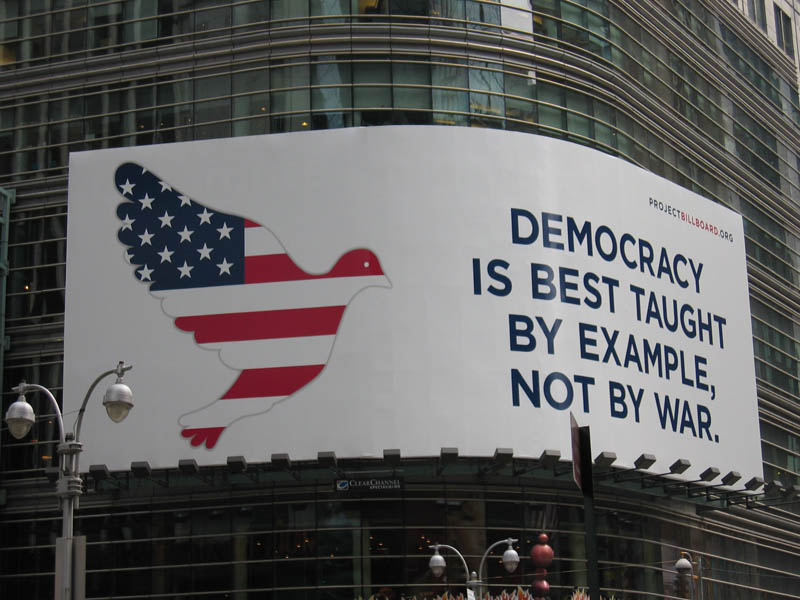Blog

The two-party system's dominance has long been a defining characteristic of American politics. In the United States, the authority of the two major political parties, the Democrats and Republicans, has long been a defining characteristic of the political landscape.
This two-party duopoly has entrenched itself, limiting political discourse, stifling voter choice, and hindering progress. However, there is a growing recognition that this duopoly limits political diversity, hampers effective governance, and restricts voter representation. A growing movement for political reform is challenging this status quo, advocating for alternative options for breaking the mold.
The Challenges of the Two-Party System

The two-party system has fostered an environment of limited choices, stifled electoral competitions, and expanding political horizons. The domination of the Democratic and Republican parties has led to a lack of diversity in ideas, policies, and candidates. This narrow representation often fails to address various needs and interests.
While it has certain advantages, such as promoting stability and simplifying the electoral process, it also poses some significant difficulties:
• Limited Representation: The two-party system often limits political representation, as it marginalizes smaller parties and independent candidates and can exclude diverse voices and perspectives from political engagement. We may feel compelled to align ourselves with one of the two major parties, even if our views do not fully align with either party's platform.
• Lack of Choice: The range of policy options is limited, with only two dominant parties. We may find ourselves voting for the lesser of two evils rather than a candidate representing their values and priorities, and it can lead to voter disillusionment and a sense of alienation from the political process.
• Polarization: The two-party system often exacerbates political polarization. As parties strive to differentiate themselves from their opponents, they may adopt more extreme positions to appeal to their core supporters. This "us versus them" mentality can hinder constructive dialogue and compromise, making it challenging to address complex issues effectively in multiparty systems.
• Gridlock and Partisan Politics: The two-party system can contribute to traffic and partisan politics, mainly when there is a lack of cooperation and compromise between the two major parties. It can hinder policy-making, impede the passage of legislation, prevent necessary reforms, and bring about bipartisan gridlock. The focus on winning elections and gaining political advantage precedes the public interest.
• Limited Innovation and New Ideas: The dominance of two major parties can discourage the emergence of new ideas and innovative solutions to societal problems. Smaller parties and independent candidates may offer fresh perspectives and alternative approaches often overlooked or dismissed within the two-party framework.
• Perpetuation of the Status Quo: The two-party system can reinforce the existing power structures and perpetuate the influence of established interests and political engagement. Incumbents from the two major parties often enjoy significant advantages in fundraising, media coverage, and voter recognition, making it difficult for newcomers or other candidates to challenge the status quo.
The Benefits of Political Diversity
Breaking the two-party duopoly and embracing alternative political options can significantly benefit our democracy. To overcome the challenges posed by the two-party duopoly, we must embrace political diversity and explore alternative political possibilities for expanding political horizon and enlightenment:
1. Increased Voter Choice
Increased voter choice is essential for a healthy and robust democracy. When voters have more options, it promotes competition among candidates and allows for a greater diversity of voices and ideas presented in the government.
One way to increase voter choice is through electoral reform, such as implementing ranked-choice voting. Ranked-choice voting allows voters to rank candidates in order of preference. Suppose no candidate receives a majority of first-choice votes. In that case, the candidate with the fewest votes gets eliminated, and the ballot gets redistributed to the remaining candidates based on the voters' subsequent preferences. This process continues until one candidate receives a majority of the votes.
Ranked-choice voting encourages candidates to appeal to a broader base of voters since they need to consider not only their core supporters but also those who might rank them as a second or third choice. It leads to more civil and issue-focused campaigns, incentivizing candidates to build coalitions and appeal to a broader range of voters.
Another way to increase voter choice is by reducing barriers to ballot access for independent and third-party candidates. Many electoral systems have stringent requirements that make it difficult for candidates outside the two major parties to appear on the ballot. By lowering these barriers, more candidates can participate in elections, providing voters with additional choices and alternative perspectives.
Ensuring fair and inclusive debate and media coverage is crucial for increasing voter choice. All candidates, regardless of party affiliation or level of support, should have equal opportunities to present their platforms and ideas to the public, which requires a commitment from media outlets and organizers of debates to provide fair and balanced coverage, allowing voters to make informed decisions based on a wide range of perspectives.
Increasing voter choice through electoral reform, reducing barriers to ballot access, and promoting fair and inclusive debate and media coverage are all critical steps toward strengthening democracy. By providing voters with more options, we can foster a political landscape that better reflects the diversity of our society and encourages active citizen participation.
2. Enhanced Voter Representation
The dominance of two parties can result in excluding voices and perspectives that do not conform to the established party lines and volunteer activity. In a democracy, we must present our opinions and interests in decision-making. Enhancing voter representation can ensure a more inclusive and equitable society.
We can take several measures to achieve enhanced voter representation. First and foremost, removing barriers preventing individuals from exercising their right to vote is crucial, including addressing voter suppression, restrictive voter ID laws, and gerrymandering. Everyone should have equal access to the ballot box, regardless of race, ethnicity, socioeconomic status, or other characteristics.
Promoting voter education and engagement is vital. Many individuals may not vote because we need to be more informed about the candidates, the issues at stake, or the importance of our vote by offering political campaign volunteer opportunities to us. By providing accessible and comprehensive information about elections and candidates, we can empower voters to make informed choices.
We should consider alternative voting systems that can better represent the diversity of opinions and ensure that every vote counts. Methods such as ranked-choice voting or proportional representation can help reduce the influence of majoritarianism and give a voice to minority groups and smaller political parties.
Another way to enhance voter representation is by encouraging diverse candidates to run for office and sensitizing them on why someone should run as an independent candidate. By having a more representative pool of candidates, we can ensure that a broader range of perspectives and experiences are brought to the table, leading to more inclusive policies and better reflecting the population's needs and desires.
It is essential to evaluate and improve our democratic processes continuously, which includes regularly assessing voter turnout, analyzing the impact of different policies, and actively seeking feedback from marginalized communities. By constantly striving for improvement, we can create a more robust and representative democracy.
Enhanced voter representation is essential for a healthy and thriving democracy. By removing barriers to voting, promoting voter education, exploring alternative voting systems, encouraging diverse candidates, and continuously improving our democratic processes, we can ensure that every citizen's voice is heard and valued.
3. Fostering Political Innovation
Fostering political innovation is crucial for the progress and development of our society. As a collective, we have the power to shape the future of our political systems and institutions, and it is essential that we actively engage in the process of finding new and innovative approaches.
To foster political innovation, we must first recognize the need for change, which requires acknowledging the limitations and shortcomings of our current political landscape. We should encourage open and honest discussions about our challenges and explore alternative ideas and perspectives.
One way to promote political innovation is by creating spaces for collaboration and dialogue, which involves bringing together diverse groups of individuals with different backgrounds, experiences, and expertise. We can stimulate creativity and generate innovative solutions by fostering an inclusive environment that values and respects different opinions.
It is also essential to support and empower individuals passionate about political innovation, which we can do through education, training programs, and engaging in volunteer activities that provide the necessary knowledge and skills to navigate the complexities of the political sphere. Investing in developing political leaders and activists can cultivate a new generation of innovators equipped to drive positive change.
Embracing technology and leveraging its potential can significantly contribute to political innovation. From digital platforms that enable citizen engagement and participation to data analytics tools that inform evidence-based policy-making, technology can revolutionize how we approach politics. By staying informed about emerging technologies and supporting their responsible implementation, we can harness their transformative power to improve political processes.
It requires a willingness to experiment and take calculated risks, creating a culture that embraces change and adapts to new ideas. It also involves learning from both successes and failures, as they provide valuable insights for future innovation.
Fostering political innovation is a collective endeavor that requires open-mindedness, collaboration, and a commitment to continuous improvement. By creating an environment that encourages creativity, supporting individuals dedicated to driving change, embracing technology, and being open to experimentation, we can lay the foundation for a more innovative and responsive political system that serves the needs and aspirations of our society.
4. Holding Parties Accountable
Independent candidates and third parties help keep the dominant parties in check. It creates a competitive environment that compels the major parties to address the concerns of a broader spectrum of voters. Accountability ensures that parties remain responsive to the needs and desires of the electorate.
To hold parties accountable, we can employ various means:
• Legal recourse: The legal system plays a significant role in holding individuals and organizations accountable. Laws, regulations, and judicial processes provide a framework for addressing wrongdoing and imposing appropriate penalties or restitution.
• Transparency and public scrutiny: Shedding light on misconduct and making it public can pressure the responsible party. We can expose wrongdoing and encourage accountability through investigative journalism, whistleblowers, and public awareness campaigns.
• Social and professional consequences: Societal norms and professional standards can hold individuals accountable for their actions. Public condemnation, loss of reputation, and professional matters such as job loss or exclusion from specific industries can be powerful deterrents.
• Civil society and activism: Grassroots movements, advocacy groups, and civil society organizations play a vital role in holding parties accountable. They mobilize public opinion, push for legal and policy changes, and support victims, amplifying their voices and pursuing justice.
• Ethical and corporate responsibility: Organizations must uphold ethical standards and be accountable for their actions. Codes of conduct, corporate social responsibility initiatives, and independent audits can help ensure that businesses act responsibly and are held responsible for misconduct.
• Political accountability: In democratic societies, holding politicians accountable is crucial. Elections, political debates, and the media play significant roles in scrutinizing politicians' actions, policies, and promises, allowing voters to hold them accountable through the electoral process.
• Personal responsibility: We should act ethically and be accountable for our actions. Promoting a culture of accountability in our personal lives can contribute to a more responsible society.
Holding parties accountable is an ongoing process that requires vigilance and collective effort. It helps maintain the integrity of our systems, promotes justice, and fosters a society where individuals and organizations are responsible for their actions.
There are instances throughout history where the two-party system faced challenges, leading to positive outcomes and inspiring change. In recent years, third-party candidates have emerged as strong contenders in several elections, provoking valuable debates and offering alternative visions for the future. Additionally, independent candidates have significantly contributed to the political landscape, bringing fresh perspectives and ideas to the forefront.
Taking Action for Political Reform

Political reform refers to how well our government works and what we can do to make it better. To break the two-party duopoly and advance political reform, we must actively participate in the democratic process.
Here are some ways to make a difference:
1. Support Third-Party Candidates: Consider voting for independent or third-party candidates who align with your values and policy preferences. By supporting alternative voices, you diversify political representation and send a clear message to the established parties.
2. Get Involved: Engage in grassroots organizing and volunteer activities for political campaigns that promote reforms and alternative options. Dedicating your time and energy, you help create the momentum necessary for change. You can make a difference by joining the political reform movement.
3. Educate Others: Spread awareness about the problems associated with the two-party duopoly and the benefits of embracing political diversity. Share informative articles, resources, and success stories to inspire others to consider alternative political options, expanding political horizons.
4. Advocate for Electoral Reforms: Support initiatives that improve the electoral system, such as ranked-choice voting, campaign finance reform, and fair redistricting. These reforms can level the playing field and create a more inclusive and representative democracy.
Breaking the two-party duopoly is crucial for expanding voter choice, enhancing voter representation and alternative political options, and fostering political innovation.
We can work towards a more inclusive and dynamic political landscape by actively supporting independent and third-party candidates, engaging in political movements, and advocating for electoral reforms, satisfying the expected query, "Why vote 3rd party?". Let us seize this opportunity to shape a democracy that truly reflects the diverse perspectives and interests of the American people.
Join the movement for political reform by signing up on goodparty.org and be part of the collective effort to challenge the two-party duopoly and gain insight into what important role do third parties play in American democracy. Together, we can work towards creating a more inclusive and transparent political system that represents the voices of all citizens.
Let's break free from the two-party duopoly and explore alternative political options. Take the time to research and learn about third-party candidates in your area. Understanding their platforms and policies allows us to make informed decisions that align with our values and beliefs.
Awareness is crucial in driving change. Help spread the word by sharing this article with your friends and family. Let's start conversations and inspire others to question the status quo and challenge the two-party system's dominance.
